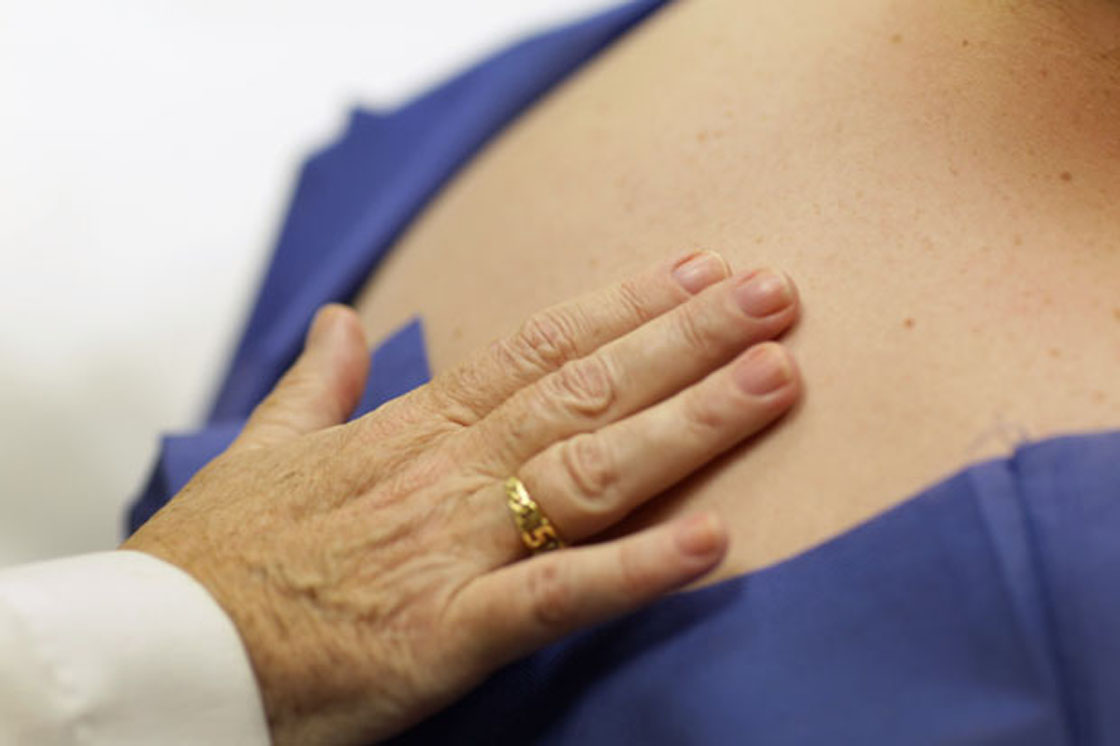TORONTO – It wasn’t until after his first heart attack that Simon Hardman learned he had a string of factors that put his heart health at risk.

He had high blood pressure, “dangerous” levels of cholesterol and post-episode, he learned his family had a history of heart disease. As a bar manager in Vancouver, he wasn’t eating the healthiest and he was in a high stress environment. These are all red flags for heart disease.
By Christmas Eve in 2000, on his way home from work Hardman suffered his first heart attack.
“I just thought I was out of breath … I was a walking time bomb,” he told Global News.
“It’s a crazy story and it gets crazier,” Hardman said.
His story may be one shared by other heart attack survivors.
Missing the red flags for heart attack risk
One out of every four patients was not tested for diabetes or high cholesterol in the years before their first heart attack, a new Canadian study suggests.
Had they been screened for these risk factors, they could have received medical treatment or advice on changing their lifestyle, the Institute for Clinical Evaluative Sciences (ICES) study says.
Read more: Do heart attack survivors change their unhealthy ways? Study suggests they don’t
About 5,700 Ontario patients were studied from April 2004 to March 2005. Results showed that 27 per cent of them hadn’t had their cholesterol levels checked in the five years leading up to their heart attack. Another 27 per cent didn’t have their blood sugar levels checked for diabetes within three years before their episode.
“That’s pretty significant. They weren’t tested for these two major risk factors and … everyone should be screened for these factors,” lead study author Dr. Jack Tu told Global News.
“It could prevent heart attacks from occurring.”
Tu is a staff cardiologist at Sunnybrook Schulich Heart Centre and a Canada Research Chair at the University of Toronto.
Doctors visits should include universal screening procedures
An overwhelming 95 per cent of these patients had seen their family doctors within those five years, Tu noted. It’s just that they weren’t tested for these factors.
That’s why Tu and his team are calling for a universal program to screen for cardiac risk factors.
Identifying and addressing heart health risks — high blood pressure, high cholesterol, smoking, obesity, excessive drinking, stress, for example — is better than treating patients after a heart attack when the heart muscles have already been damaged.
Read more: Canada’s boomers face ‘dangerous’ levels of high blood pressure: report
Programs already exist in fellow nations: the United Kingdom has clear definition of risks and when to screen for them and even offers reminders to physicians. Meanwhile, in the Netherlands, patients are mailed reminders to head to their doctor’s office for a checkup.
In Canada, guidelines call for screening over the age of 40 — cholesterol should be checked every five years and diabetes should be checked every three years. If patients have a family history of heart disease, diabetes, or other factors, or they’re of certain ethnic groups that are more at risk, recommendations urge for more frequent screening.
“One of the problems is that although the guidelines are out there, there is no organized push to have doctors adhere to the guidelines,” Tu said.
Read more: Top 10: Some of the worst foods for your heart’s health
Patients and doctors alike may forget because of hectic schedules or difficulty in keeping health records up to date. Patients also need to fast for about 10 hours before taking blood tests, so it can become inconvenient, Tu said.
“The patient and doctor are jointly responsible,” he said.
Younger Canadians are more likely to miss out on screening, especially men, the study notes.
Prevention is key to keeping patients healthy
Stopping a heart attack from occurring in the first place protects patients from other dangerous complications.
Once patients have a heart attack, the risk of having another episode increases. The risk of heart failure, surgery, and relying on medications are other precarious situations that follow heart attack survivors.
“We want people to think more about prevention and not treatment. We spend a lot of money on treatment of heart attacks, but not prevention,” Tu said.
Hardman, now 50, suffered a second heart attack in 2005 when his fabric stent collapsed.
But since then he’s picked up healthy eating and some light exercise. He now spends time at home with his wife and has even switched careers, working as a photographer for an auto sales company.
Read more: What you should be eating to lower your blood pressure
He said he believes a universal screening program would help Canadians.
“If people think they have something wrong, they need to go to the doctor. I waited, I thought I had the flu,” Hardman said.
“The problem could have been figured out a lot faster and probably would have saved me a lot of anguish,” he said.
The study was published Thursday in the Canadian Journal of Cardiology.
carmen.chai@globalnews.ca
Follow @Carmen_Chai




Comments